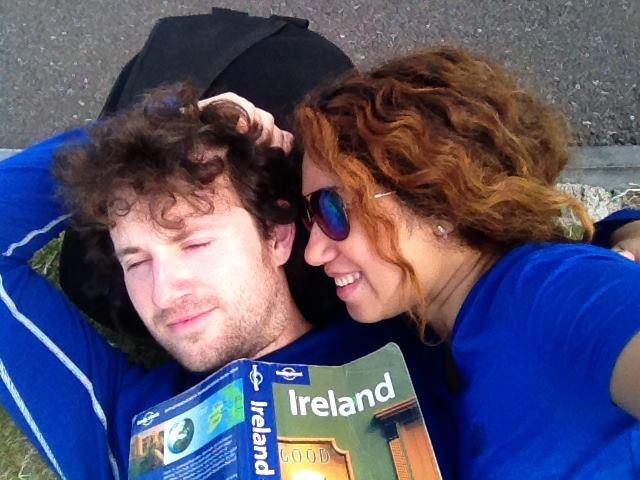Travel Security: The Complete Guide To Protecting Your Valuables While Travelling
It may surprise you to learn that 400,000 pickpocketing incidents occur throughout the world every single day.
In the UK alone, 600,000 pickpocketing occur every year.
In Barcelona, a single city, over 6,000 pickpocketing incidents were reported in 2009. That’s more than 16 incidents every day.
33% of all travel insurance claims are for goods that have been lost or stolen.
A laptop is stolen every 53 seconds and according to the FBI, 97% of them are never recovered.
Although petty theft is believed to be less prevalent now than it was a few decades ago, statistics like these reveal that it’s still a major menace in many parts of the world.
Pickpockets, cell phone snatchers, bag slashers and other breeds of thief are evidently outfoxing hundreds of thousands of unsuspecting people every single day - a sore reminder that we’re not doing nearly as much as we could be to protect our personal belongings.
We may not be carrying as much cash on our person as we might have done in the past, but we’re not bearing any dearth of other lucrative goods like cell phones, tablets, credit cards, fancy watches and precious jewellery.
Travellers are often an exception to the present cashless trend however. In many parts of the world cash is king and yet ATMs (or at least reliable ones that accept foreign cards) are ironically few and far between.
Travellers are thus often obliged to carry a fat stack of high-denomination bank notes on their person to ensure a supply of cash at all times throughout their trip.
Most travellers of today are also likely to be carrying a lot of valuable gadgetry and equipment like DSLR cameras, GoPro action cameras, smartphones, tablets, laptops, drones, e-readers, binoculars and so on.
If you were to calculate the total cost of replacing all the items that you normally travel with, you'd probably be quite flabbergasted at the resulting figure. For many travellers it would exceed $3,000.
Combine all this valuable property that travellers are bearing with the fact that they’re often confused, disoriented and distracted by the exotic sights, sounds, smells and sensations of the foreign countries that they’re visiting, and you’ve got an ideal mark for a thief.
Worse still, the consequences of being pickpocketed or mugged are particularly grave for a traveller.
Having your passport or wallet stolen while gallivanting in a foreign land could be a disaster since your social support network back home may not be able to do much to help you.
A lot of travellers mistakenly believe that such incidents only happen to those who are extremely unlucky or to those who are naïve or lack street smarts.
Unfortunately, the reality is that incidents of theft are much more common than most people estimate and common sense advice like “be aware of your surroundings” isn’t sufficient to prevent theft anymore.
We must bear in mind that this is a perpetually evolving game where travellers adapt new ways to thwart robbery and thieves respond by becoming more cunning and by devising ever more sophisticated techniques and tools to relieve you of your precious belongings.
Even the most street-savvy travellers can now fall victim to crafty pilferers if they don’t take all the right precautions and don’t have the right gear.
In this in-depth guide to protecting your belongings on the road you’re going to learn all about those precautions you need to be taking and the special anti-theft clothing and gadgets that have been developed to help you defeat thieves.
We’ll also talk about some things you can do to remedy a situation where despite your best efforts at prevention you still end up being dispossessed of your valuables during a trip.
This is the most comprehensive guide to travel security on the Internet. Are you ready to master this subject and learn how to vanquish thieves once and for all? Let’s dive right in!
#1 - Leave unessential valuables at home
.jpg)
The first precaution on our list is a pretty obvious one, but the problem is that not everybody implements it.
You can easily prevent valuables from being stolen during your trip by leaving them at home.
This presumes of course that you do have a home base somewhere and that your home is a secure place to leave valuable stuff while you’re away.
We reckon that as long as you live in a reasonably safe neighbourhood and you don’t have a history of burglaries at your home, it would be wiser to leave stuff behind than take it with you.
If you have a guard dog and somebody that you trust to occupy and look after the property while you’re away then even better.
If you don’t have a secure home where you could keep things locked up, and leaving stuff with parents, relatives or friends isn’t a viable option, you can look into hiring a storage unit.
.jpg)
This is a very popular option with many long-term travellers but you need to weigh your options carefully, as not all storage facilities are the same.
There are many factors to consider like the level of security, size of the unit, whether it has climate control, cleanliness, pest control, price and so on.
We’re not going to go into great detail here about choosing a storage facility as this is another topic in itself but you can get some further information from this article.
Unfortunately, even if you have a secure place to keep stuff while away you can’t always leave every big-ticket item behind because some of those items may be crucially important to fulfill the objectives of your trip.
For example, if it’s a trip where you plan to do a lot of bird watching, you’ll need to pack a decent pair of binoculars.
Or if you’re a professional travel photographer, there’s probably no way you can swing your trip without bringing your high-end DSLR camera, expensive lenses, and other essential photography gear.
Likewise, if you were a digital nomad, leaving your high-performance laptop at home would certainly hamper, if not completely cripple your ability to work and earn money online while travelling.
But there may be certain valuable articles you might wish to bring on a trip that aren’t strictly needed to fulfill the objectives of the trip. It is these items that should be left behind.
For example, for most trips you probably shouldn’t pack or wear expensive jewellery, high-end watches, designer clothing, or pricey gadgets that you’re not going to need or use during your trip.
Don’t bring along items of sentimental value either, such as a wedding ring or a locket with a photo of a deceased relative; losing such goods could be emotionally devastating, even if they are technically replaceable.
#2 - Spend minimal time in the big cities
.jpg)
If you really want to minimize the risk of being pickpocketed or mugged while travelling, you might want to give the big bustling cities a miss.
Most of the stories you’ve heard about travellers getting robbed probably occurred in the context of a large city.
And if you’ve ever travelled to a hectic city before, whether domestic or foreign, you’ve probably experienced that niggling feeling of uneasiness and vulnerability that seems to vanish as soon as you escape to the serene hinterland.
Indeed rates of petty theft and crime in general are usually much higher in cities than in rural areas, and there is also a positive correlation between the size of a city and its crime rate per capita.
Large numbers of well-off, hard-working urban professionals in large cities inevitably attract parasitic thieves from surrounding areas looking for an easy way to make a living.
There are also so many more opportunities for shoplifting, vehicle theft and burglary of private property in big cities than in the countryside.
And because cities are full of strangers whose relationships tend to be quite impersonal, it’s easier for thieves to rationalize stealing from the people around them.
In big metropolises thieves know that the risk of being arrested is low, as they are likely to remain anonymous to their victims and may never encounter their victim again after the incident, which all encourages misbehavior.
Furthermore, the overcrowded, overstimulating urban environment rife with distractions is also the optimal habitat for those with sticky fingers to operate in, leaving you the traveller at a considerable disadvantage.
.jpg)
Retreating to laid-back villages and quaint hamlets in the countryside where you have ample personal space, population densities are markedly lower and thieves are fewer in number, will, in most cases, significantly reduce the odds that you will be mugged, pickpocketed or otherwise relieved of your precious possessions.
In many remote and close-knit rural communities around the world, theft is such a rare and unlikely occurrence that residents will leave all the doors and windows of their homes and vehicles unlocked or even wide open round the clock.
In such communities the inhabitants tend to be quite intimate with all of their neighbours, there is a climate of mutual trust, and people wouldn’t risk spoiling their reputation within the community for the sake of making a quick buck.
By spending more time travelling in the countryside, you can also avail of the many other important benefits like the unpolluted air, tranquility, picturesque scenery, friendly locals and the easy access to nature.
The health benefits of getting out of the city cannot be understated. It has been known for quite some time that those who spend too much time living in cities are far more likely to wind up overweight, depressed, infertile and myopic, and are at greater risk of developing cancer.
You will also have the chance to learn first-hand about forestry, fisheries, mining, agriculture, wildlife, indigenous people and many other phenomena that cities can only educate you about in indirect ways, such as through museums.
.jpg)
#3 - Avoid cities where the risk of theft is elevated
If avoiding metropolises outright is not your cup of tea, we have compiled a list of some of the world's worst cities for petty theft and armed robberies.
You might consider skipping some of these destinations if you wish to stay as safe as possible and minimize the risk of being fleeced when you go abroad.
If most of these cities are too alluring for you to avoid entirely, you'll at least come to know where you ought to be particularly circumspect.
Unsurprisingly, many of the most risky cities also happen to be ones that receive a high influx of foreign tourists.
Would-be thieves flock to the cities like vultures to take advantage of the high numbers of naïve, well-off tourists that often possess more money and valuable belongings than sense.
Here are some of the most theft-prone cities in the world:
Paris, France

The city of love might be a dream honeymoon destination for some, but many visitors overlook its darker side.
Paris is full of thieves and pickpockets seeking to prey on naïve tourists, especially the ones who are gripped by a love-induced stupor.
Many of the thieves in Paris are teenagers and their favourite haunts are transport hubs, the metro, museums like the Louvre and various other tourist hotspots.
Popular distraction techniques used by Parisian pickpockets include the “crush and grab” (where a large group jostles you on the metro while voiding your pockets) and spilling ice cream or drinks on your clothing and then offering to clean it up while an accomplice picks your pockets.
Watch our for the infamous gold ring scam in Paris, where the con-artist pretends to have suddenly found a genuine gold ring lying on the pavement, and then tries to immediately sell the worthless piece of metal to a gullible bystander.
Barcelona, Spain
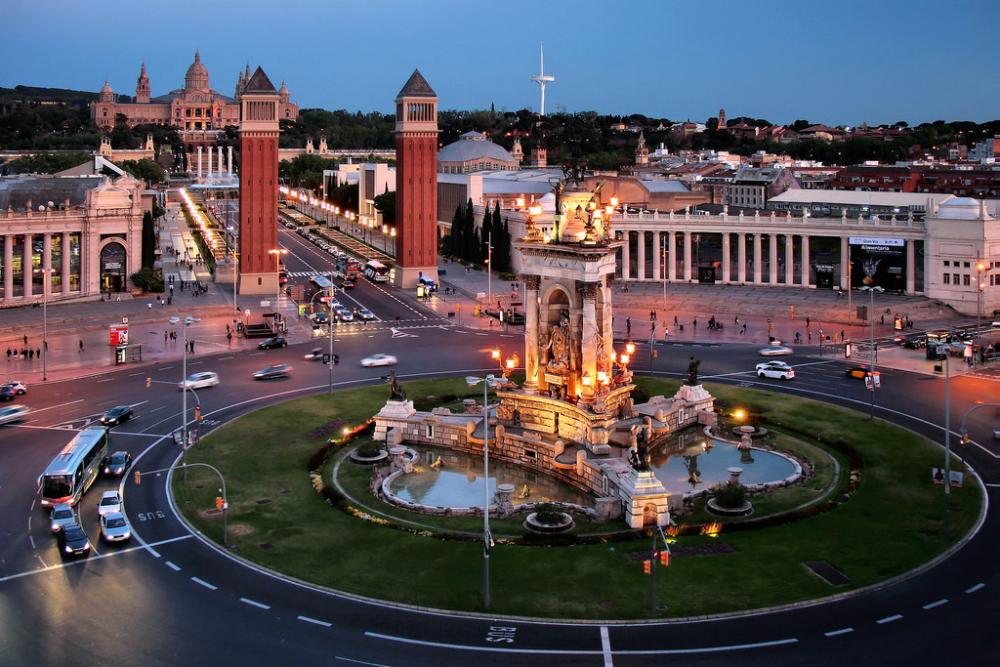
Barcelona is often dubbed the pickpocketing capital of Europe. The problem of petty crime against tourists has existed in the seaside metropolis for a long time and local authorities have been unable to curb it to date.
Theft-prone areas in the city include the beaches, metro, transport hubs, the Gothic Quarter, La Rambla Boulevard, Plaza Real, Park Güell, Sagrada Familia and Olympic Park.
The bird poo scam, although by no means confined to Barcelona, but it is very common here so we ought to tell you about it. Here the scam is known as La Mancha, which means “the stain”.
Luckily, more than 75% of attempts at this scam are unsuccessful and after reading this you will more than likely emerge unscathed too, if you ever encounter the scam.
How the bird poo scam first unfolds is that one of the conspirators will squirt some odd concoction resembling bird poo on your hair or clothing, usually in the region of your head, shoulders or upper back.
Sometimes ketchup or mustard is used instead of fake bird poo, or any other substance that you’d feel compelled to clean off your clothes immediately.
Usually two people will be in on the scam and if you don’t feel the splat the scam artists will then kindly notify you about the “bird poo” that has soiled you, and will direct your attention to the source of your misfortune - a pigeon or other bird perching on a tree branch, lamp post or electric wire overhead.
The scam artists will then offer, with a suspicious degree of enthusiasm, to help you clean up the mess, and one of them will very conveniently have a handkerchief (or a box of tissues) and a bottle of water at the ready.
The only purpose of this fake bird poo and the subsequent clean-up operation is to keep you distracted while one of the offenders fleeces your belongings.
Because of where the gunk has been deposited (shoulders, upper back etc.), you’ll normally be encouraged to take off your jacket or backpack to make it easier for the two crooks to clean you up.
Of course, the real reason you’re asked to do this is so that the thieves can more easily access those normally difficult-to-reach backpack or jacket pockets that hold your valuables.
After all the commotion, the scammers often get away with a wallet, cell phone or even an entire backpack.
Deft-handed thieves are also known to remove necklaces and other jewellery from victim’s bodies during the clean-up operation.
In many cases the thieves will extract all the cash from the victim’s wallet and then replace the wallet in his pocket, so that when he pats his pocket immediately afterwards he feels reassured that nothing has been stolen, and hence doesn’t chase after the offenders.
It is only later that the truth dawns upon the victim when he opens up his wallet and realizes the cash is gone.
Rio De Janeiro, Brazil
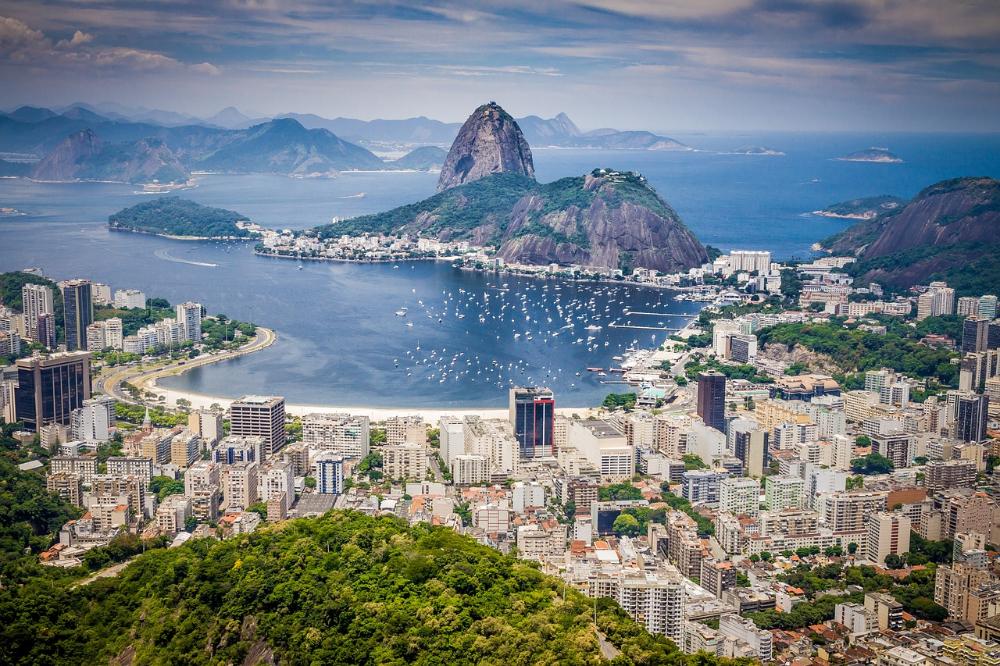
It’s not just within the favelas or the shady neighbourhoods that you’re at risk of being robbed in the famous Brazilian city of Rio De Janeiro.
You also might be harassed by mischievous children begging for money or offering to shine your shoes at crowded beaches and other popular tourist spots.
Often while one child is distracting you at the front, another swoops in from behind to rob you.
Carjacking by armed thieves, especially at intersections, is also a problem in Rio De Janeiro so it’s important to keep your doors locked at all times if you’re driving a rental vehicle.
The city also has some of the highest rates in the world for rape, murder and other violent crimes so it’s definitely a place to be on high alert.
Rome, Italy

Rome is almost as bad as Barcelona when it comes to petty crime perpetrated against tourists. It’s not only pickpocketing that’s problematic here but muggings are also prevalent.
Thieves approach tourists while they’re thoroughly distracted, lifting valuables from their bags and pockets while they gaze up in awe at the frescoed ceiling of the Sistine chapel and other artistic and architectural wonders.
Even tour guides have been pickpocketed in the Sistine Chapel and the problem there is largely a result of overcrowding. The adjacent museums, St Peter’s Basilica and St Peter’s Square are also trouble spots.
Other hotspots for thieves in the city are (understandably) the Colosseum and the Trevi Fountain.
Be especially alert if taking bus no. 64, which is often jam-packed with tourists and runs between St Peter’s Square and Termini (Rome’s main transport hub).
Several other Italian cities are also problematic as regards petty larceny. You should also be on your guard in Naples, Florence and other cities that are popular tourist destinations.
Prague, Czech Republic

Prague is generally a very safe city, although pickpocketing can still be a bit of a problem in the Czech capital. Many tourists report having been victimized and having their trip spoilt by the incident.
As in most large European cities, the places to be especially guarded are the transport hubs, trams, metro, subway, tourist attractions, shopping districts and any crowded places, especially if these places are frequented by tourists.
The historic Charles Bridge spanning the Vltava river is one of the most crowded spots in the city and many tourists get pickpocketed here while they are taking photos or are otherwise distracted.
Pickpockets also masquerade as prostitutes in Prague, preying on desperate tourists on their way back to their hotel from bars or clubs at night, especially drunk ones who don’t have their wits about them.
Usually the “prostitutes” work in pairs, and one of them will deftly lift the victim’s wallet from his pocket while touching him amorously and continuously uttering the word “sex”.
The prostitute then discreetly hands the wallet over to the accomplice, who will then extract all the cash and hand the wallet back to the first prostitute, who then slips it back into the target’s pocket without him realizing.
The pair will then swiftly flee the scene in case the tourist checks his wallet soon after the robbery and comes back to confront the two offenders.
It’s mostly only tourists that are targeted as locals are generally savvier and also more likely to report an incident to the police.
Cape Town, South Africa

The easy-going atmosphere of this South African port city often lulls tourists into a false sense of security, but Cape Town is by no means a place to let one’s guard down.
Indeed, the city has higher rates for theft, homicide and property-related crime than any other South African city.
Not only is petty theft like pickpocketing and bag snatching a problem in Cape Town but so are armed robberies, where the weapon of choice is usually a knife.
If you find yourself in congested areas like Greenmarket Square, Adderly Street, Long Street and the train station, you ought to be on high alert for petty thieves.
Armed robberies more commonly occur in secluded spots or strike tourists hiking the main attractions like Signal Hill, Lion’s Head and Table Mountain. This is because the odds of there being a witness to the crime in these places is lower.
Overall about 66% of the robberies that occur in Cape Town are of the unarmed variety.
Tourists should also be wary at ATM machines in Cape Town, especially after dark. Cashpoints that aren’t manned by a uniformed guard should be avoided entirely.
Flash kidnapping is another cause for concern in Cape Town.
Also known as a lightning kidnapping or express kidnapping, a flash kidnapping is where a person will be kidnapped on the spur of the moment and will be forced to withdraw as much money as possible from an ATM using their debit or credit card.
Usually the offenders release the victim in less than 24 hours after they’ve gotten what they wanted, but sometimes they hold onto their prey for days, bringing the person back to the ATM day after day to withdraw the daily limit each time.
If the kidnappers can’t extract money from the victim via cashpoints, they will often contact his family and force them to pay several thousand dollars in ransom for his release.
Buenos Aires
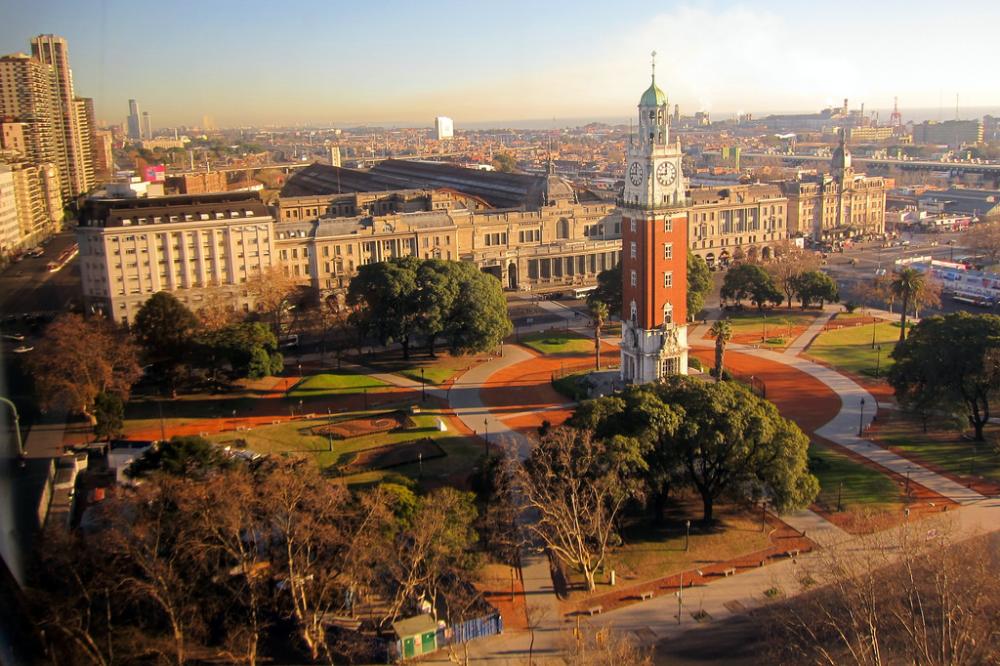
Although violent crime is quite rare in the Argentinian capital, pickpocketing, drive-by purse-snatching and other forms of petty theft are pretty common.
Mobile phone theft in particular has been on the rise in recent years and the illegal trade in stolen devices is believed to generate upwards of $AR 200 million per month.
In Argentina as a whole more than 6,500 cell phone thefts occur every single day.
The reason for this trend is that selling stolen cell phones is extremely lucrative in Buenos Aires.
Due to absurdly high import taxes, electronics retail in Argentina for two to three times what they might cost in the US.
World Nomads advises tourists to be especially vigilant in touristy areas like La Boca, the Retiro Bus Terminal, downtown and San Telmo, and to avoid sketchy neighbourhoods like Villa Riachuelo and Villa Lugano, especially after dark.
Large shopping malls, public transport and transport hubs all hold potential for trouble from thieves.
The bird poo scam and variations of it often occur in Buenos Aires, where the perpetrator might squirt liquids, ketchup, mustard or fake bird poo onto your hair or clothing.
Express kidnappings also occur here in Buenos Aires from time to time. Often the kidnappers target the relatives of wealthy people like local soccer stars or actors, and demand huge ransoms like $200,000.
But sometimes these criminals kidnap ordinary people who just happen to be in the wrong place at the wrong time, and demand a few hundred dollars for the person’s release.
Carjacking also occasionally occurs at traffic lights in Buenos Aires, so it’s wise to keep doors locked at all times if you’re driving a rental vehicle in the city.
Punta Cana

The Caribbean resort town, located at the easternmost tip of the Dominican Republic took the #1 spot in Trip Advisor’s “world’s most dangerous cities for tourists” list.
Many tourists in recent years have been victims of armed robberies when leaving the Las Americas International Airport, especially at night.
Thieves will often disguise themselves as police officers and command taxis or private vehicles to pull over, before robbing the occupants at gunpoint.
Room theft is also a big problem in Punta Cana, with many tourists reporting valuables going missing from their rooms and even from “secure” in-room hotel safes.
This is a common issue at all-inclusive resorts where tourists often let their guard down because they falsely assume that expensive accommodates equates to more secure.
In reality, more thieves are attracted to these high-end resorts because they know the clientele is more affluent, and the security of the establishment does not always increase in proportion to the greater threat.
Drive-by snatching of bags and purses from cars and motorycles is also a problem in Punta Cana and thieves will often turn the engine of their mopeds off so that they can cruise up silently behind their victims.
Thieves on motorcycles will also reach into vehicles stalled at red lights to grab whatever they can if the windows are left rolled down.
Data theft is also a scourge in Punta Cana, with ATM and credit card fraud very prevalent. Many tourists have reported fraudulent transaction appearing on their account statements months after their trip has ended.
For more information on crime against tourists in Punta Cana, check out World Nomad’s helpful articleon avoiding theft in the Dominican Republic.
Madrid
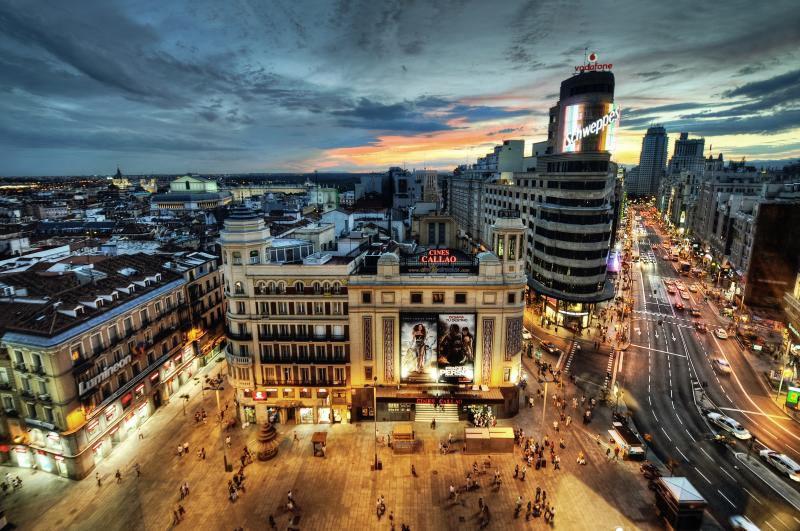
Though Barcelona might be considered worse, the Spanish capital also has a big problem with petty theft, with the two cities together bringing a double-dose of shame upon the country of Spain.
Tourists should watch out for pickpockets around transport hubs, popular restaurants and touristy spots, on the metro and in crowded marketplaces.
There have been a lot of reports here of baggage being stolen from hotels throughout the city, and also from the airport.
Criminals in Madrid deploy a wide variety of tricks and strategies in their quest to relieve tourists of their belongings.
Pickpockets will often approach with a map pretending to be lost and asking you for directions.
The map is held in front of your face to distract you, meanwhile an accomplice suddenly enters the scene, sneaks up on you from behind and picks your pockets without you even realizing.
Pickpockets operating solo might also use the map to shield their hand from view as they reach into your pockets while conversing with you.
Thieves pretending to be plain-clothes police officers also prey on tourists here in the Spanish capital.
Often they brandish fake ID badges and drive vehicles with fake insignias that make them look like real police cars.
These fake policemen might approach you on the street and ask you to hand over your ID and wallet for inspection, on the pretext that you’re suspected to be carrying drugs or counterfeit bank notes.
Once you hand over your wallet the fake cop will usually grab the cash out of it and scarper.
These fake cops also force vehicles to pull over at the side of the road in order to “search” them for drugs and fake bank notes.
If the thieves don’t manage to seize any high value items like smartphones, jewellery, watches and cash while searching the vehicle, they’ll then demand them from the terrified occupants.
Another ploy of fake cops is to accuse you of committing a crime and demand that you pay an on-the-spot fine or a bribe. The fake cop will usually threaten to arrest you if you don’t comply.
Most of these fake cops in Madrid are itinerants of Iranian or Pakistani nationality, according to this article.
Athens

The Greek capital, often dubbed the City of the Gods, has in recent years become a hotbed in Europe for petty crime and pickpocketing.
Despite a major crackdown in the city capital, pickpocketing remains a huge problem on the metro, especially on the line between Athens International Airport and the city centre, where the train cars are frequently carrying newly-arrived, unsuspecting tourists.
The thieves are after anything of value – cash, mobile phones, jewellery, travel documents, you name it.
Many tourists visiting Athens have had to visit their respective embassies in the city to obtain emergency passports as a result of all the robberies.
One gang of metro thieves was exposed by police in 2017 and was earning as much as €3,500 per day from “working” the trains, according to The Telegraph.
The article also notes that the police are arresting 50 thieves every day in the city and that most are Albanian immigrants.
Cashpoints in or near metro stations in Athens should be avoided as thieves will often follow tourists to the train platform after they make an ATM withdrawal.
When the victim steps onto the train and the doors are about to close, the thief will pinch the victim’s wallet and then step off the train as the doors are closing, leaving the tourist helpless to give chase (if he even realizes he has been pickpocketed).
Other scenarios where you need to be vigilant are while waiting in line at tourist attractions like the Acropolis, on the public buses and at bottlenecks where the street narrows and forces you to brush past somebody.
There has also been a spike in muggings and break-ins in Athens in the last year or so, although levels of violent crime in the city still remain relatively low, as in most other European capitals.
Areas to avoid in Athens, especially at night, include Omonia (red light district) and Monastiraki and near the railways stations of Peloponissos and Larissa.
All of these problems are believed to be linked to the long-running economic crisis that the country has been experiencing.
A helpful resource for ensuring your safety during a trip to Athens is this detailed guide to crime in Athens by Matt Barrett.
Hanoi
.jpg)
We’ve visited Hanoi twice and while we never had anything stolen while we were there, this may just have been because we have become quite savvy from years of exposure to pickpockets and con-artists.
There are too many stories in circulation about travellers who’ve had their smartphones, wallets, necklaces, purses and cameras snatched right out of their hands or off their bodies.
In Hanoi snatching theft is often committed in the drive-by fashion by men on motorcycles. And the pickpockets here are said to rank among the stealthiest and most light-fingered in the world.
The conditions in the city’s old quarter are highly conducive to petty theft, with a warren of narrow, congested streets, excessive numbers of people plying the laneways on motorcycles, and a generally chaotic and distracting environment that overloads the senses.
Hotel theft also appears to happen occasionally in Hanoi.
In this thread in the Lonely Planet Thorn Tree travel forum one traveller reports on two separate incidents in two different hotels where he returned to his hotel room to find some cash missing.
He believes that in both cases it was the hotel management that stole the money from his room rather than the cleaning staff.
Both hotels were reluctant to investigate the matter and did not check the CCTV footage at his request.
They tried to fob him off by claiming that he must have miscounted his cash, the CCTV camera was broken and that an incident like this has never happened before.
Only when the man threatened to tarnish the reputation of the two hotels did they both eventually capitulate and reimburse him.
#4 - Know your enemy
Your content goes here...
#5 - Don't behave like a clueless tourist

It’s not just because tourists are often carrying a lot of cash and valuable personal belongings that they make attractive targets for local pickpockets and thieves.
It’s also because of certain behaviours and attributes that they tend to display.
We know that pickpockets prefer easy, defenseless, vulnerable targets so that they maximize their chances of success and minimize the risk that they’ll beaten up or physically injured by their victim if they are caught or confronted during the act.
Ideal targets for pickpockets include people who are old, blind, deaf, mentally handicapped or crippled, but also just regular people without any major physical or mental impairments who are fatigued, absent-minded or distracted.
Pickpockets also love people who are oblivious to and poorly equipped to combat the human hazards of a place.
Unfortunately, tourists exhibit many of these characteristics.
They are often distracted by maps or with taking photographs.
They often scan their environment in wonder, distracted by things that locals find to be commonplace and pass by every single day without giving so much as a second glance.
Tourists are often jetlagged or sleep-deprived after long-haul flights from faraway places.
They spend long, tiring days engaging in intensive sightseeing, travelling to and fro between multiple locations, reading innumerable information placards and lengthy captions underneath museum exhibits.
Holidaymakers are often exhausted by the end of each day and on their way back to the hotel their brains power down into energy-saving mode - alertness diminishes and pickpockets eagerly swoop in for the kill.
Despite the best efforts of travel guidebooks, tourists are also frequently uninformed or incredulous of local hazards like petty theft in many of the destinations they visit, and consequently are also unprepared to effectively combat these problems when they arrive.
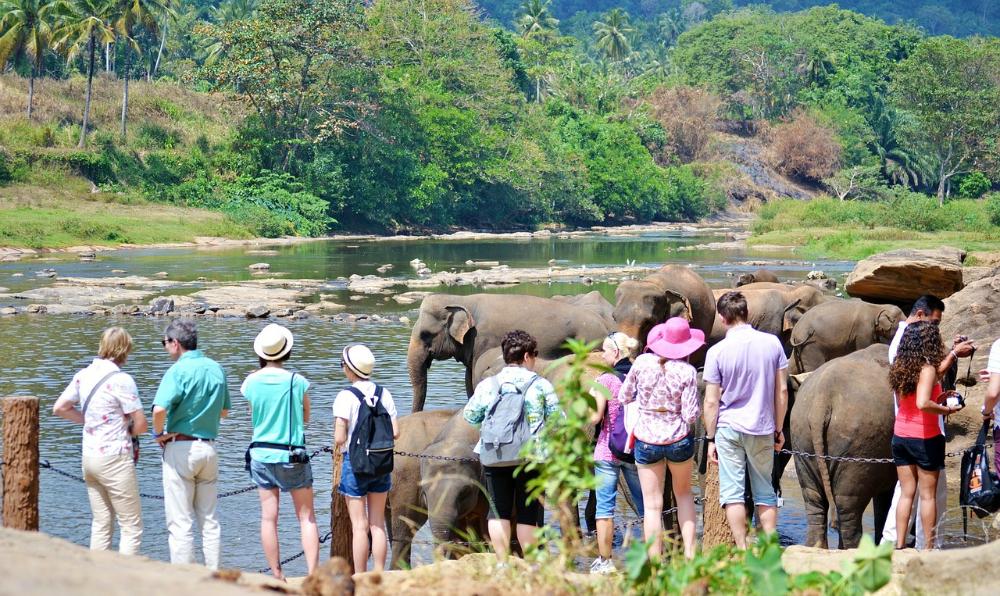
So it is obvious that tourists tend to possess certain attributes and habits that make them attractive targets for petty thieves.
You definitely therefore want to avoid being stereotyped as a bumbling tourist by the local villains.
Dressing like a local will certainly help you to differentiate yourself from other tourists, especially if you’re fortunate enough to be mistakable for a native.
But the one way you can definitely blend in better with the local populace is by managing your conduct.
Now it may not always be possible to feign being an experienced expat who has been living in your destination country for years or to masquerade as an expert traveller if you’re not one, but you should at least be able to avoid emulating the habits of a typical new arrival.
Newly arrived tourists are considered fresh meat - prime targets for thieves and pickpockets, and they are more desirable prey than the tourists who have been around for a while.
This is because even tourists who have only been in a destination for one week can lose much of their vulnerability and become unappealing targets for criminals.
Over the course of their visit, tourists tend to rapidly learn about the local hazards and scams that are found in their destination, and they also habituate surprisingly quickly to the local curiosities and hence become less distractable.
So how should you behave so as to avoid being stereotyped as a clueless, fresh-off-the-plane, vulnerable tourist?
Here are a few pointers:
Stop scanning your environment
Scanning is an adaptive natural behavior whenever we enter an unfamiliar context and is designed for us to collect new information about our surroundings and also to scan them for potential threats.
However, if you can resist this natural impulse to scan a new environment you will appear less distracted to thieves and won’t be identified as an easy target.
Keep a poker face
If you observe things that intrigue or fascinate you, try your hardest to maintain a poker face and appear nonchalant.
Your eyes and mouth shouldn’t be opening wide in amazement at every unfamiliar thing that you see.
Remember, you’re the travellers that has already witnessed these spectacles a hundred times and they’re old hat at this stage.
Avoid blatantly signalling wealth
A lot of tourists, for example, walk around the streets flaunting flashy DSLR cameras around their necks, even when they’re not actively taking photos.
Don’t overload your wallet with local currency when you leave your hotel room and if it does happen to be filled with big notes, try not to demonstrate that fact to everyone when you take it out to pay for something.
When you’re in public places, dress in plain, unassuming clothing to avoid attracting unwanted attention and keep any valuables, devices or expensive equipment you’re carrying concealed inside your pockets or backpack unless there’s a dire need to take them out.
Go easy on the selfies
Taking selfies with foreign people or visually appealing backdrops is the quintessential behavior of a tourist. Using a telescopic selfie-stick takes it to the next level.
Taking too many selfies not only identifies you as a newly arrived tourist that’s overly enthusiastic about photographing everything, but also reveals that you’re carrying a smartphone, a high value item that local thieves in many countries love to steal.
Don’t wear touristy accessories
A fanny pack is one of the hallmarks of a gullible American tourist who is out of their element. They are like a beacon to pickpockets that signals a perfect target.
Fanny packs are also not very difficult for thieves to pilfer (even if worn in front) as they are worn over the clothing instead of underneath it.
Thieves can unbuckle them or slash the straps and pass them off to an accomplice, or even pickpocket them if there’s a large enough crowd or if they can distract you.
Instead of wearing a fanny pack, wear a backpack, preferably an anti-theft one. We have a whole section devoted to these below.
Another travel accessory that is a major no-no is the wide-brimmed hat, which many tourists wear to look fashionable and to protect their face and neck from the intensity of the sun.
Other popular types of hat could be equally fatal, including the Fedora hat, rain hat, bucket hat, safari hat, fascinator hat and the straw hat.
Most of these hats carry strong colonialist connotations and will distinguish you as the posh Western tourist with excesses of disposable income and leisure time.
If you follow any popular Instagram travel accounts, especially in the luxury travel niche, it often seems that these hats are often worn more for purposes of fashion, social media attention and status, than for practical reasons.
Feign competence and certainty
You should always try to avoid displaying confusion or uncertainty about anything, even if you’re feeling totally clueless.
Demonstrating doubt and a lack of competence in your new, unfamiliar environment makes you look like a newly arrived tourist and can cause you to attract predators.
If you’re confused about directions, check Google Maps on your smartphone discreetly before holding up a huge foldable map that tells the world you’re lost.
Do plenty of research about your destination in advance so that you have fewer questions to ask local people when you arrive.
If a stranger approaches you and asks you questions about when you arrived, how long you’ve been here, how many countries you’ve visited, what your profession is and so on, he may be trying to assess whether you’d make a viable target (high reward, low risk) or not.
Therefore, always respond by telling the stranger that you’re an experienced traveller that is returning to the destination for the umpteenth time, and that you don’t need his assistance (even if you do).
Mentioning that you’re unemployed and travelling on an extremely low budget may also help to deter any advances.
Stay alert around strangers
A lot of tourists get robbed because they let their guard down in the wrong situations, or because they simply never had their guard up in the first place.
Perhaps the neighbourhoods they live and work in back home are very safe, so they’re not in the habit of being on the lookout for threats and are oblivious to how easily things can get stolen given the right circumstances.
Just the simple daily habit of frequently checking in with your surroundings, abstaining from daydreaming in busy places, being aware of your personal space, and remaining vigilant for potential thieves is often enough to keep you out of trouble.
Although you definitely don’t want to become paranoid, it’s helpful to view most strangers in your environment with a healthy degree of suspicion, especially the ones that seem to be interested in getting into your personal space.
Disassociate yourself from other tourists
If you’re in close proximity to a group of blundering tourists, you may be mistaken for a member of the group, even if you’re not.
It’s best to maintain your distance from groups of tourists that you think could jeopardize your safety by attracting the wrong people.
JOIN OUR LIST
SUPPORT US
FOLLOW US
ABOUT US
Our names are Eoghan and Jili and we hail from Ireland and India respectively.
We are two ardent shoestring budget adventure travellers and have been travelling throughout Asia continuously for the past few years.
Having accrued such a wealth of stories and knowledge from our extraordinary and transformative journey, our mission is now to share everything we've experienced and all of the lessons we've learned with our readers.
Do make sure to subscribe above in order to receive our free e-mail updates and exclusive travel tips & hints. If you would like to learn more about our story, philosophy and mission, please visit our about page.
Never stop travelling!
FOLLOW US ON FACEBOOK
FOLLOW US ON PINTEREST
-lw-scaled.png.png)

